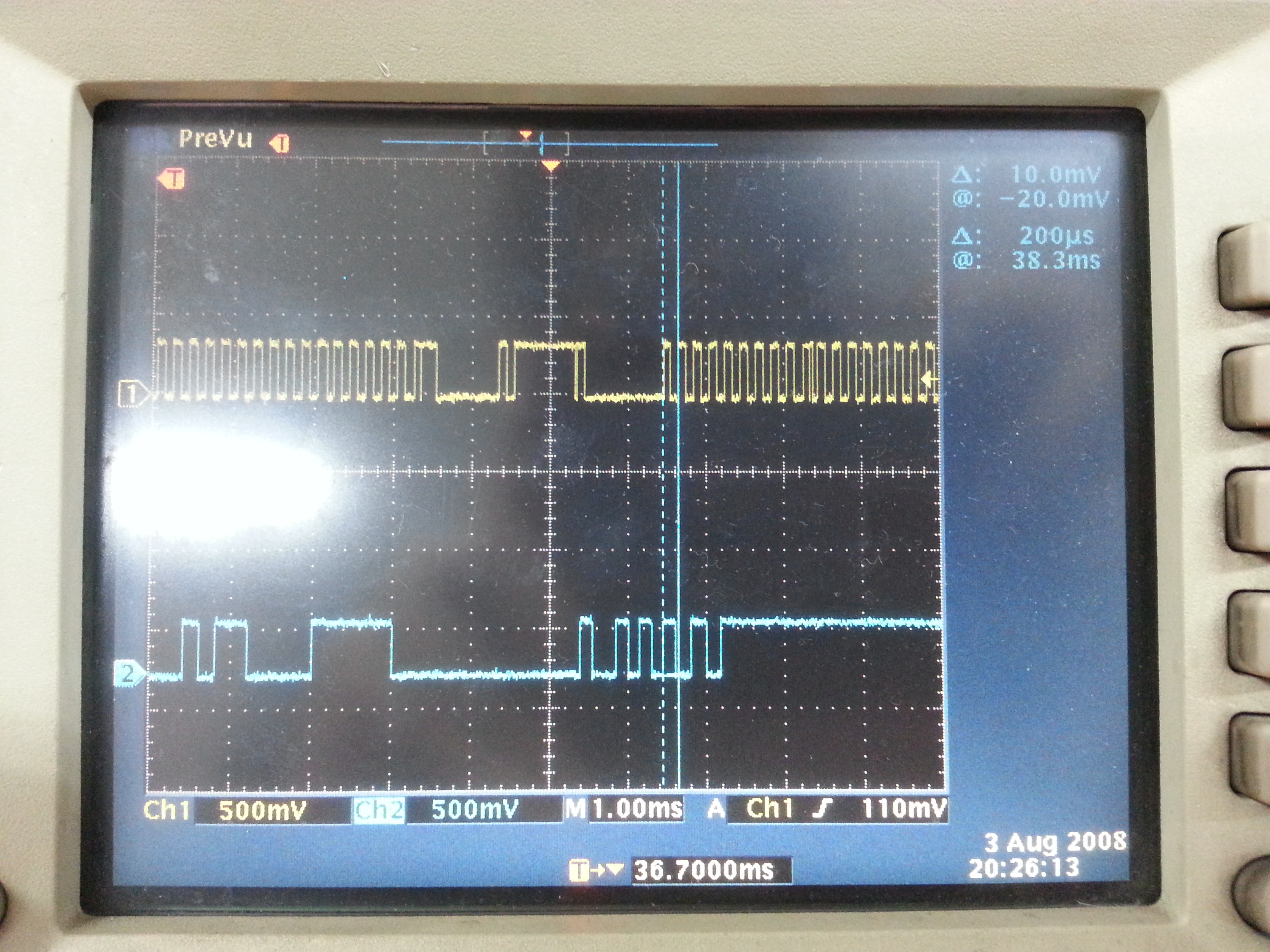Hi nordics!
First of all, thanks for answering my questions before.
Now, I want to generate a clock(48 pulses) with 200us width.
However, sometimes the width of pulse(clock) is not accurate.

**yellow line is the clock line.
(Maybe it is because of the softDevice... I should make the pulse during BLE connection)
I read some post that I need to make the timer interrupt with GPIOTE, but I don't know how to make the timer interrupt with GPIOTE.
Can you fix my code up, or let me know some examples?
This is my code.
Thanks.
void timer2_init(void) {
uint32_t err_code;
// Configure timer
NRF_TIMER2->MODE = TIMER_MODE_MODE_Timer;
NRF_TIMER2->BITMODE = TIMER_BITMODE_BITMODE_16Bit;
NRF_TIMER2->PRESCALER = 4;
// Clear the timer
NRF_TIMER2->TASKS_CLEAR = 1;
NRF_TIMER2->CC[0] = 100;
NRF_TIMER2->INTENSET = TIMER_INTENSET_COMPARE0_Enabled << TIMER_INTENSET_COMPARE0_Pos;
NRF_TIMER2->SHORTS=(TIMER_SHORTS_COMPARE0_CLEAR_Enabled << TIMER_SHORTS_COMPARE0_CLEAR_Pos);
//NRF_TIMER1->TASKS_START = 1;
err_code = sd_nvic_SetPriority(TIMER2_IRQn,3);
APP_ERROR_CHECK(err_code);
}
void TIMER2_IRQHandler(void) {
if ((NRF_TIMER2->EVENTS_COMPARE[0] == 1) &&
(NRF_TIMER2->INTENSET & TIMER_INTENSET_COMPARE0_Msk))
{
NRF_TIMER2->EVENTS_COMPARE[0] = 0;
if(tick==0){
nrf_gpio_pin_set(SCL);
tick=1;
}
else if(tick==1){
nrf_gpio_pin_clear(SCL);
tick=0;
my_cnt++;
}
}
//finish
if(my_cnt==48){
my_cnt=0;
sd_nvic_DisableIRQ(TIMER2_IRQn);
NRF_TIMER2->TASKS_STOP=1;
nrf_gpio_pin_clear(SCL);
}
}
static void my_app_timer_timeout_handler(void * p_context) {
sd_nvic_ClearPendingIRQ(TIMER2_IRQn);
sd_nvic_EnableIRQ(TIMER2_IRQn);
NRF_TIMER2->TASKS_START=1;
nrf_gpio_pin_clear(SCL);
}
int main(void) {
// Initialize.
...
...
my_app_timer_init();
gpiote_init();
...
...
ble_stack_init();
scheduler_init();
...
...
my_app_timer_start(); //my_app_timer call the timer2 interrupt in every 20ms.
advertising_start();
...
...
timer2_init();
// Enter main loop.
for (;;)
{
app_sched_execute();
power_manage();
}
}


